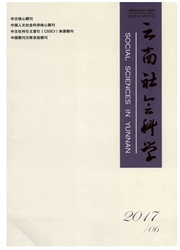

 中文摘要:
中文摘要:
以田野调查所收集的大量清水江下游地区清代和民国版本的苗族侗族家谱为中心,考察了清代清水江下游苗族侗族的建祠修谱、移民记忆、祖先祭祀等宗族活动。认为清代清水江下游地区兴起的以儒家伦理思想为宗旨的宗族制度是边缘社会土著族群建构正统文化身份的普遍策略,同时也是王朝国家推行教化政策,建构边疆社会秩序的重要工具。
 英文摘要:
英文摘要:
Focused on a large number of Miao and Dong genealogies from the Qing Dynasty and the Republic of China collected through fieldwork, the present study is to make a survey of the activities of Miao and Dong clans in the lower reaches area of the Qingshui River in the Qing Dynasty in terms of ancestral hall constructions, genealogy compiling, immigrant memories, ancestor worship and so on. It is concluded that the clan system centered in Confucian ethics was not only the general strategy of orthodox cultural identity construction of the indigenous clans of the marginal social communities in the area, but also an important tool of the royal state to implement its enlightenment policy and to maintain the social order of border areas in the Qing Dynasty.
 同期刊论文项目
同期刊论文项目
 同项目期刊论文
同项目期刊论文
 期刊信息
期刊信息
